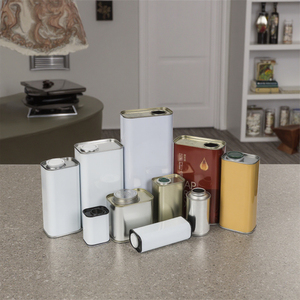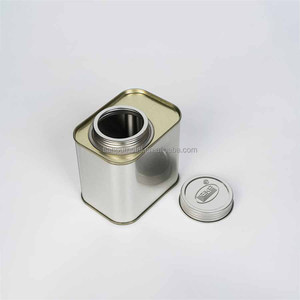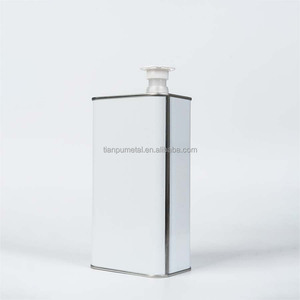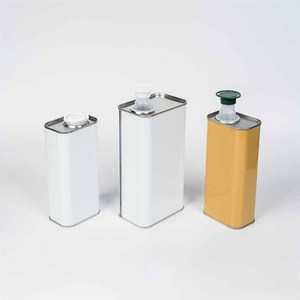
All categories
Featured selections
Trade Assurance
Buyer Central
Help Center
Get the app
Become a supplier

(2487 products available)


























Market Overview: The global market for tin can closing machines is poised for significant growth, with an estimated market size of USD 820.91 million in 2023, projected to reach USD 1.09 billion by 2030, reflecting a compound annual growth rate (CAGR) of 4.14%, according to Research and Markets. This growth is primarily fueled by the rising demand for canned food and beverages, driven by urban consumers seeking convenience and longer shelf life. The Americas, particularly the United States and Canada, showcase a high adoption of advanced can seaming technologies, including IoT and AI integration, enhancing real-time monitoring and quality control in production processes. Meanwhile, the Asia-Pacific region is rapidly expanding, with countries like China and India leading the charge due to urbanization and a burgeoning food and beverage industry.
Industry Insights: The tin can closing machine market is witnessing a shift towards automation, with a growing preference for automatic seamers in industrial applications due to their efficiency and reliability. However, the market faces challenges such as high initial costs and maintenance complexities, which can deter small and medium-sized enterprises. Furthermore, stringent regulations in the European Union regarding food safety and quality control necessitate the adoption of advanced can seaming technologies, promoting innovation among manufacturers. Companies like JBT Corporation and Pneumatic Scale Angelus are leading the way by introducing new products that enhance sealing integrity and operational efficiency. As the market evolves, the focus on sustainable and recyclable packaging solutions is expected to drive further improvements in can seaming technology, responding to the increasing consumer demand for environmentally friendly options.
A tin can closing machine, also known as a can seamer or can closing machine, is used to seal the lids onto the cans containing food items, beverages, and chemicals. This sealing process is done manually, semi-automatically, or automatically, depending on the type of can closing machine in question. When using a can closing machine, it is advised never to use a machine that can damage the can or its contents.
Generally, the can closing machine can be divided into three categories based on the level of assistance it provides to the user when sealing cans:
Manual can closer
The manual can closer relies solely on human power to seal the cans. The can closer is equipped with a lever that applies the necessary pressure to seal the can. The manual can closer is used in small-scale operations because it is small and limited to closing only a few cans daily. On the bright side, the manual closer is more affordable and takes up less space than any other closer.
Semi-automatic Can Closers
A semi-automatic can closer requires some human input in the sealing process, although it provides some assistance. This type of closing machine is more efficient than the manual one because, with some input, more cans can be closed in a given time frame. The semi-automatic closer can be bolted to the floor so it doesn’t move around as the cans are closed.
Automatic can closer
The automatic can closer is entirely machine-operated and is the most efficient closing method due to automation. The machine uses a motor to drive the closing action, and it can perform various tasks with the same level of ease. An automatic can closer has an adjustable belt that can be modified according to the can size and is suitable for high-volume production lines. The automatic closer is more expensive than any other can closer.
The efficiency of a tin can sealer machine largely lies in the specifications that affect various functions such as speed, capacity, and pressure. Common specifications include the type, size, sealing speed, voltage and power supply, as well as the weight and dimension of the machine.
The tin can sealer machine is primarily used in the commercial canning industry to seal cans securely, but it has plenty of other applications.
Consider the following factors before buying a tin can sealer machine for sale:
Types of cans
Determine the type of can or container the closing machine is intended. Consider its compatibility with the cans purchased. Consider the sealer if there is a possibility of adding new products in the future.
Capping mechanism
Investigate the mechanism of the can sealer. Consider how it works, the level of automation or assist it offers, and any training requirements for operating it safely and efficiently.
Production rate
Determine the number of cans that can be closed per minute or hour. Consider the machine's speed and capacity to meet current demands and accommodate future growth.
Size and adjustment
Consider the can closing machine's physical dimensions and weight. Ensure that the machine's closure size and adjustment range can cope with the cans' variety and quickly switch between different configurations when required.
Quality of seals
The quality of the seal produced by the can closing machine is paramount. A robust, leak-proof seal ensures product integrity, prevents contamination, and enhances customer satisfaction.
Maintenance requirements
The maintenance requirements of the closing machine are needed to keep it running well. Consider the sealing machine's available guides and technical support. Consider tools, spare parts, and knowledgeable personnel.
Safety features
Safety features of a closing machine are crucial to protecting operators and preventing accidents. Look for safety features like emergency stops, safety guards, and interlocks.
Energy efficiency
Energy consumption of the can sealing machine may incur costs and environmental impact. Consider energy-efficient appliances designed to reduce power consumption and promote sustainable practices.
Q: Which metal is used for tin cans?
A: Most modern food cans are made of steel coated with a thin layer of tin. The coating is referred to as tin-plated steel. Aluminum is also widely used in the manufacture of cans, especially for beverage products.
Q: What are the different types of tin can closing machines?
A: The tin can closing machine is available in various types, including the manual, semi-automatic, and fully automatic can sealer machines. There are also spindle, roll-on, crimp, and chuck type sealer, as well as as-of-can sealer and air-pressure can sealer.
Q: What are the benefits of using a tin can closure machine?
A: When sealers are correctly applied, they prevent any tampering with the contents of the can. Sealers also assist in prolonging the shelf life of the contents of the can. Using a mechanically applied can sealer ensures consistency in the sealing process. This helps to maintain the company's reputation and prevents any re-calls due to poorly sealed cans.
Q: How much does a tin can closing machine cost?
A: Depending on the type and size, a tin can closing machine can cost anywhere from a few hundred to several thousand dollars.